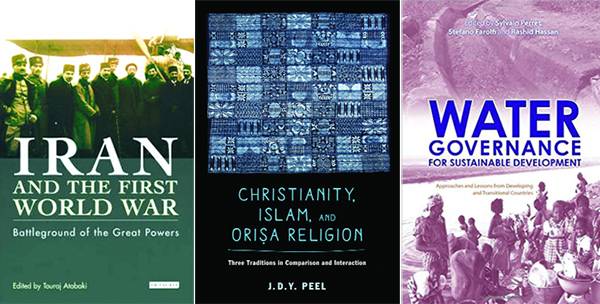
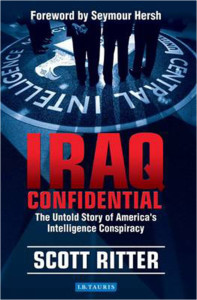
Iraq Confidential: The Untold Story of America’s Intelligence Conspiracy
Scott Ritter
Nation Books (paperback), 2005
PRs 995
Scott Ritter is the straight-talking former Marine officer whom the CIA wanted to silence. After the 1991 Gulf War Ritter helped lead the UN weapons inspections of Iraq, and found himself at the centre of a dangerous game between the Iraqi and US regimes. As Ritter now reveals in this book, Washington was only ever interested in disarmament as a tool for its own agenda: regime change. Operating in a fog of espionage and counter-espionage, Ritter and his team were determined to find out the truth about Iraq’s WMD. The CIA was equally determined to stop them. For the truth, we now know, was that Iraq was playing a deadly game of double-bluff, and actually had no WMD. But to have revealed this would have derailed America’s drive to topple Saddam Hussein.
Iraq Confidential charts the disillusionment of a true patriot, who came to realise that his own government sought to undermine weapons control in the Middle East. Ritter shows us a world of deceit and betrayal, in which nothing is as it seems. Ricocheting between trigger-happy Iraqi soldiers in the desert and duplicitous spymasters in Washington, this book provides glimpses into the real workings of international diplomacy - Ritter reveals the truth about Saddam’s so-called secret SCUD force, the chief CIA intelligence source ‘Curveball’, the involvement of the Israelis and the full extent to which the CIA simply commandeered the UN disarmament mission. A host of characters from MI6 to the Romanian intelligence services flesh out this narrative, which will radically affect the ongoing debates about Iraq.
About the Author
William Scott Ritter, Jr. is noted for his early career as an intelligence officer, as a United Nations weapons inspector in Iraq, and more recently as a critic of United States foreign policy in the Middle East.
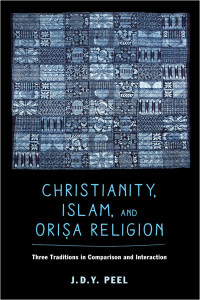
Christianity, Islam, And Orisa Religion: Three Traditions in Comparison and Interaction
J D Y Peel
University of California Press (paperback), 2015
PRs 4,965
The Yoruba of southwestern Nigeria are exceptional for the copresence among them of three religious traditions: Islam, Christianity, and the indigenous orisa religion. In this comparative study, at once historical and anthropological, Peel explores the intertwined character of the three religions and the dense imbrication of religion in all aspects of Yoruba history up to the present. For over 400 years, the Yoruba have straddled two geocultural spheres: one reaching north over the Sahara to the world of Islam, the other linking them to the Euro-American world via the Atlantic. These two external spheres were the source of contrasting cultural influences, notably those emanating from the world religions. However, the Yoruba not only imported Islam and Christianity but also exported their own orisa religion to the New World. Before the voluntary modern diaspora that has brought many Yoruba to Europe and the Americas, tens of thousands were sold as slaves in the New World, bringing with them the worship of the orisa.
Peel offers deep insight into important contemporary themes such as religious conversion, new religious movements, relations between world religions, the conditions of religious violence, the transnational flows of contemporary religion, and the interplay between tradition and the demands of an ever-changing present. In the process, he makes a major theoretical contribution to the anthropology of world religions.
About the Author
J D Y Peel (1941-2015) died shortly before this book went to press. He was professor Emeritus of Anthropology and Sociology at the School of Oriental and African Studies, University of London. This is his last major work.
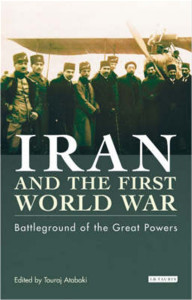
Iran and the First World War: Battleground of the Great Powers
Touraj Atabaki
I B Tauris (hardcover), 2006
PRs 5,755
The First World War, leading to the overthrow of the Qajar regime and replacement by Reza Shah, was pivotal in the history of modern Iran. The Constitutional Revolution of 1906-09 aimed to abolish the arbitrary regime and bring in a modern constitution and parliament. But growing provincial unrest and rebellion by nomadic peoples brought chaos and instability, heightened by the strains of war and intervention by foreign powers. Iran was on the brink of disintegration, modernisation had failed, and growing frustration and pressure from the disillusioned middle classes, intelligentsia and urban population, set the stage for centralisation of power under the `Man of Order’ - Reza Shah.
About the Author
Touraj Atabaki is Professor of Modern History at the University of Amsterdam and senior Research Fellow at the International Institute of Social History.
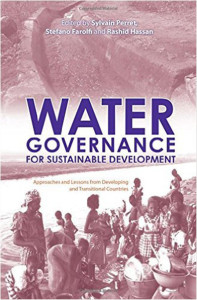
Water Governance for Sustainable Development: Approaches and Lessons from Developing and Transitional Countries
Sylvain Perret, Stefano Farolfi and Rashid Hassan
Routledge (hardcover), 2007
PRs 1,690
The management of, and access to, water resources have been universally identified as a key aspect of poverty reduction, agriculture and food security and sustainable development in developing, transitional, and developed countries worldwide. Yet good water governance, so eagerly sought, has in practice proven difficult to achieve. This book, edited and authored by leading authorities on water resource management, examines the recent changes in governance, institutions, economics, and policies of water, from a global point of view and a cross-country perspective, with special emphasis on African and Southern African case studies.
The authors show that in recent years, water policies, institutions, and governance have shifted from technical, quantitative, supply-driven, centrally controlled management to more demand-sensitive, qualitative, decentralized, participatory, integrated approaches. Such a move also often supposes cost recovery principles, resource allocation among competing sectors, and privatization. In most developing countries, motivations for these changes have been increased resource scarcity, increased diversity of users and uses, urbanization, financial constraints and the need for sustainable development through renewed water management. Yet the creation and operation of new policies and legal frameworks often fall short of initial expectations since management transfer and decentralization processes, cost recovery principles and the emergence of new local organizations have proven difficult to implement. The book examines these issues through case studies at national, river basin, and local levels using accessible multidisciplinary approaches that integrate economics, institutional analysis, geography, and policy analysis. Ultimately the book untangles and presents best practices for policy and decision makers, governments and regulators, NGOs and user groups, farmers, water-supply companies, and researchers, and points towards how good water governance structures can be developed and implemented for the benefit of all.
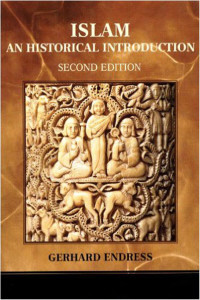
Islam: An Historical Introduction
Gerhard Endress
Columbia University Press (paperback), 2002
PRs 3,100
Hailed as a concise survey of Islamic history and culture, An Introduction to Islam covers everything from Islamic theology and law to the development of the Arabic, Persian, and Turkish languages, from social and economic life in the middle ages to the invention of the Muslim calendar. For the second edition, the text as well as the references and bibliography have been brought up to date.
Reviews
An accurate picture of the interplay of religious inspiration and historical circumstances which shaped Islamic history from its inception... It reflects a distinct sensitivity to the nuances of the subject culture, combined with a clear command of the scholarly sources - (MESA Bulletin)
An invaluable and convenient source of information. - (Journal of Semitic Studies (of the 1st ed.))

